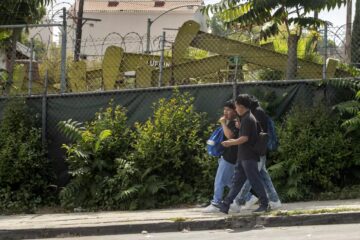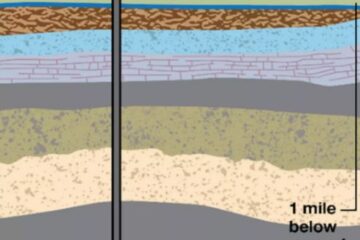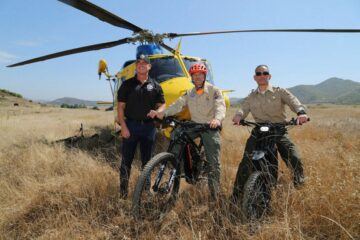A mountain bike ban in a Santa Cruz park could be a signal of more to come
Battle of wheels
Source of this article – Los Angeles Times, January 25, 2005.
ByJim Rossi, Special to The Times
LOGGERS ravaged the Santa Cruz Mountains in a redwood-slashing frenzy a century ago before a Northern California family acquired a piece of the scarred slopes near Aptos. Intent on healing the forest, the Marks family donated 9,000 acres to the state more than 40 years ago to help create the Forest of Nisene Marks State Park with a key stipulation: The government must manage that land as a nature preserve for hikers; no horses or motorized vehicles allowed.

OFF THE TRAIL: Wooded slopes, cliffs and loamy soil make the Forest of Nisene Marks State Parka favorite of mountain bikers. But a court has ruled that restrictions in the donated land also exclude the bikes.
All went well for decades until the invention of the mountain bike. Wooded slopes, cliffs and loamy soil made Nisene Marks and nearby lands a magnet for mountain bikers from around the world. Over the last two decades, 17 bike shops sprouted in the Santa Cruz area and bike manufacturers such as Santa Cruz Bicycles and Fox Racing Shox moved in. Pro and recreational riders swarmed to the terrain, irritating some nature lovers and day hikers who say they sometimes dodge zooming cycles on narrow trails.
Now a court has settled the matter. In a December ruling, Sacramento County Superior Court Judge Judy Holzer Hersher ruled that the restrictions in the Marks’ original deed also exclude mountain bikes. Although mountain bikes weren’t around when the family deeded the land to the state, the judge ruled that courts “guard zealously the restrictive covenants in donations of lands for public use.”
Sandy Henn of the 20-member Citizens for the Preservation of Nisene Marks and a plaintiff in the case, says hikers seek restrictions of other users as well, including horseback riders, to protect hikers and reduce erosion in the upper end of the park. Her attorney, Bill Parkin, says the state Department of Parks and Recreation ignored deed restrictions to “preserve the park for activities respectful of its natural surrounding such as camping, nature study and hiking.” Parkin says the case could potentially have far-reaching implications because most of California’s redwood parks originated in deeds from private citizens.
The dispute over who controls the trails, man or machine, plays out in backcountry wilderness and urban-adjacent parks across California and the West. Conflicts between mountain bikers and hikers have flared in the Santa Monica Mountains, along Colorado’s Front Range, Marin County, the Siskiyous, the Trinity Alps and the King Range of the Lost Coast in Northern California.
Mountain bikers have been using the Nisene Marks park, particularly the more remote and rugged upper reaches, for years. They often trail-poach in the park while descending from a legal fire road in the ultra-technical Soquel Demonstration State Forest nearby. Other times, according to park ranger Nedra Martinez, some riders cut new routes through the forest, creating a “huge problem.”
“Steep slopes plus radical design equals erosion,” says Chuck Wisse, a mountain biker and cofounder ofTrailworkers, a group of local bikers, hikers and horse riders who maintain trails in Santa Cruz County.
Nonetheless, Wisse believes the mountain bike ban will make matters worse because it punishes responsible bikers and the ban is difficult to enforce. For now, local riders seeking legal singletrack must stay in Soquel Demonstration Forest or shuttle to nearby Wilder Ranch State Park.
Nevertheless, the state parks department approved mountain bike use in Nisene Marks in its 2003 general plan, a decision that triggered the lawsuit. “We’re disappointed the general plan didn’t work out,” says Santa Cruz Park District Superintendent Kirk Lingenfelter.
But mountain bikers are rallying in response to the court ruling, sending hundreds of letters to authorities seeking park access and planning a Feb. 1 protest ride. They say that mountain biking, which has occurred in the park for 15 years, can be managed, and they plan to appeal the court decision.
“The idea of an absolute ban on mountain bikes because of user conflicts is a raw deal,” says Mike Van Abel, executive director for the International Mountain Bicycling Assn.
Mountain biking advocates say a 1994 study by Montana State University showed bike tires cause less trail damage than hiking boots and less damage than horse hoofs.
David Green Baskin, an officer for the Mountain Bikers of Santa Cruz and an attorney, says bikes rarely disturb hikers on infrequently traveled upper trails of the park. He says he believes the Marks’ deed does not exclude mountain bikes because they are not motorized vehicles and that the deed is unenforceable because state law nullifies certain deed restrictions after 30 years.
“Too many people, not enough land,” Wisse says. “Somehow we’ve got to make it work.”


